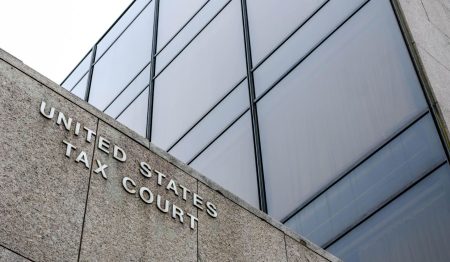The Financial Crimes Enforcement Network—more commonly known as FinCEN—in close coordination with the Internal Revenue Service Criminal Investigation—sometimes referred to as CI or IRS-CI—issued an alert to financial institutions on fraud schemes related to the COVID-19 Employee Retention Credit (ERC).
The alert provides an overview of some indicators associated with ERC fraud and scams, highlights red flags to assist financial institutions in identifying and reporting suspicious activity, and reminds financial institutions of their reporting requirements under the Bank Secrecy Act (BSA).
The alert notes, for example, that the ERC is credited through a Treasury-issued check mailed to the business address used to apply for the credit—it is not issued via direct deposit. Those Treasury checks will reflect the tax quarter and IRS Form (such as Form 941) associated with the credit.
Some red flags for banks and financial institutions in detecting, preventing, and reporting suspicious transactions associated with ERC fraud that were in the alert include:
- A business account that receives more than one ERC check for deposit over multiple days
- A small business account that receives an ERC check for deposit that is not commensurate with the size of the business, the number of employees, and the volume of transactions
- An account that receives an ERC check for deposit and has no deposits other than Treasury-issued checks, or the account has no regular business transactions
- A customer attempts to deposit an altered Treasury ERC check, or financial institutions are unable to verify the validity of the checks that customers attempt to deposit
- A new business account that did not exist in 2020 or 2021 that receives an ERC check for deposit
- A dormant business account suddenly receives an ERC check deposit.
- An ERC is deposited into a business account with no payroll history.
The alert notes that many of these red flags overlap with warning signals of financial crimes related to Economic Impact Payments, or stimulus checks, authorized under the CARES Act. These red flags on their own are not necessarily determinative of fraud, but FinCEN warns financial institutions to consider the facts and circumstances, such as a customer’s historical financial activity, whether the transactions are in line with prevailing business practices, and whether the customer exhibits multiple red flags, before determining if a transaction is indicative of ERC fraud or is otherwise suspicious.
“It is unfortunate that while the COVID-19 pandemic is behind us, fraud related to COVID-19 relief programs, like the ERC, continues to occur at a concerning scale,” said FinCEN Director Andrea Gacki. “We are issuing this alert in partnership with CI to remind financial institutions that it is critical that they remain vigilant in identifying and reporting related suspicious activity and to protect businesses from being taken advantage of by fraudsters.”
“Tax credits like employee retention credits were meant to provide assistance to struggling business owners during the COVID-19 pandemic, but fraudsters, unfortunately, used the credits to line their own pockets,” said CI Chief Jim Lee. “We hope this alert will help financial institutions recognize financial patterns that indicate fraud and help us recover funds stolen from U.S. taxpayers.”
ERC Relief
Here’s how the ERC works. Eligible employers are those that paid qualified wages to some or all employees after March 12, 2020, and before Jan. 1, 2022. Typically, to qualify, you must demonstrate that your business was shut down by a government order due to the pandemic during 2020 or the first three calendar quarters of 2021, or that you experienced a specific decline in gross receipts during the eligibility periods during 2020 or the first three calendar quarters of 2021. Some businesses may also qualify as recovery startup businesses for the third or fourth quarters of 2021 (otherwise, the ERC relief was phased out by Congress for businesses for that period).
The credit is 50% of up to $10,000 in wages, meaning that it can be as high as $5,000 per employee in 2020 and as high as $21,000 per employee in 2021 (totaling the $26,000 per employee that is regularly touted).
The ERC is available to most kinds of businesses, including tax-exempt businesses. It is not available to individuals, including freelancers and independent contractors.
Some additional restrictions apply. For example, businesses may not include wages funded by a Payroll Protection Program (PPP) forgivable loan (another Covid relief program) when calculating wages eligible for the ERC.
The IRS has created a chart to help a business or other organization quickly decide if they qualify for the ERC. While the IRS acknowledges that this is a very technical area of the law, they note that the chart includes the main eligibility factors. Taxpayers are encouraged to review IRS guidance and tools for helping determine ERC eligibility, including frequently asked questions and a new question-and-answer guide to help businesses understand if they are eligible for the credit.
More information is available on IRS.gov/erc.
ERC Fraud
Despite warnings, the IRS is still encountering bad actors. Specifically, IRS-CI has identified ongoing fraud and scams related to the ERC that, to date, have resulted in 323 investigations involving more than $2.8 billion of potentially fraudulent ERC claims throughout tax years 2020, 2021, 2022, and 2023.
One of those investigations resulted in the arrest of a tax preparer for seeking more than $124 million in pandemic-related employment tax credits. In August, the Department of Justice announced the arrest of Leon Haynes of Teaneck, New Jersey. According to court documents, beginning around November 2020, Haynes prepared and filed Forms 941 claiming pandemic-related credits for clients and his own businesses. He allegedly told some clients that the government was giving out pandemic-related relief money and that they were eligible because they had a business, and told other clients that the money was a grant.
Earlier this year, citing “rising concerns about a flood of improper Employee Retention Credit claims,” the IRS announced a moratorium on processing new ERC claims. The agency says that the pause, which will run through through at least the end of the year, is intended to protect honest small business owners from scams. No new claims will be reviewed or processed until early 2024.
In October of 2023, the IRS announced a special withdrawal process for employers to withdraw their claims and avoid the possibility of getting a refund for which they’re ineligible. Taxpayers who willfully filed a fraudulent claim, or those who assisted or conspired to do so, remain subject to potential criminal investigation and prosecution.
Read the full article here









